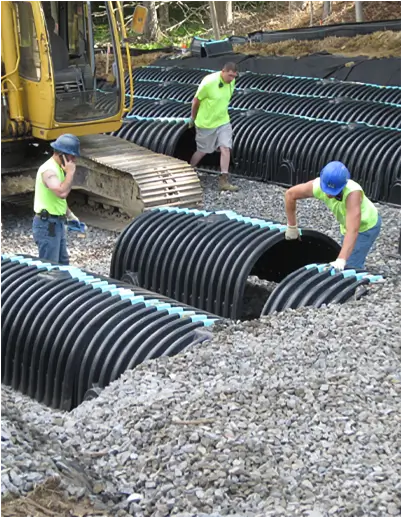Dec . 10, 2024 20:54 Back to list
HDPE Pipe Sizing and Manufacturing Solutions for Optimal Performance
Understanding HDPE Pipe Sizes and Manufacturers
High-Density Polyethylene (HDPE) pipes are widely acknowledged for their durability, flexibility, and resistance to chemical corrosion. These attributes make HDPE a preferred choice in various industries, from construction to agriculture, and beyond. As industries evolve, so does the demand for reliable and efficient piping solutions. Consequently, understanding HDPE pipe sizes and the manufacturers who produce them becomes essential for making informed purchasing decisions.
The Importance of HDPE Pipe Sizes
HDPE pipes come in various sizes, typically classified by their diameter and wall thickness. The size of the pipe is a critical factor influencing its performance, application, and overall cost. Standard sizes for HDPE pipes range from small diameters of 1 inch to large diameters that can exceed 60 inches. The size selected usually depends on the application requirements, including the volume of fluid to be transported, the pressure of the system, and the distance the fluid needs to travel.
The sizing conventions for HDPE pipes involve nominal pipe sizes (NPS) and outside diameter (OD) dimensions. The nominal size refers to the approximate diameter of the pipe, while the actual outer diameter can provide insight into the physical properties of the product. For engineers, architects, and project managers, selecting the appropriate pipe size ensures the integrity of the project and prevents costly mistakes.
Why Choose HDPE?
Manufactured from high-quality polyethylene, HDPE pipes possess numerous advantages. They are lightweight, making them easier to handle and install compared to traditional materials such as concrete or steel. Furthermore, their smooth interior walls minimize friction, which enhances flow rates and reduces the energy required for pumping systems.
One of the standout features of HDPE pipes is their resistance to corrosion and the impact of chemicals. This aspect is particularly significant for applications in industries dealing with wastewater, chemicals, or any potentially corrosive materials. Unlike metal pipes that may rust or corrode over time, HDPE pipes maintain their structural integrity, offering longevity and reliability.
Another significant advantage is the flexibility of HDPE, allowing for installation in challenging terrains and environments. HDPE pipes can withstand extreme temperatures and are resistant to environmental stressors like ground movements, making them suitable for various applications, from municipal water systems to agricultural irrigation.
pipe hdpe size manufacturer

Leading HDPE Pipe Manufacturers
With the increasing demand for HDPE pipes, several manufacturers have emerged as leaders in the field, providing a wide range of products, including variations in sizes, fittings, and accessories.
1. JM Eagle As one of the largest manufacturers of plastic pipe in the world, JM Eagle offers a comprehensive selection of HDPE pipes known for their high quality and compliance with industry standards. Their products are widely used in water, wastewater, and industrial applications.
2. Advanced Drainage Systems (ADS) Specializing in water management solutions, ADS produces various HDPE pipes with a focus on drainage and stormwater management. The company's innovative products are often used in agricultural and infrastructure projects.
3. Electrofusion Known for its HDPE piping systems, Electrofusion manufactures a variety of pipe sizes and fittings to ensure seamless integration. Their focus on advanced manufacturing processes ensures a high level of quality and consistency.
4. Savic This manufacturer is recognized for producing durable HDPE piping systems that cater to various industries. Their attention to detail in terms of sizing and compatibility allows for customized solutions to meet specific needs.
5. Stormwater Management Solutions This company specializes in the production of HDPE pipes designed particularly for stormwater applications. Their commitment to innovation and sustainability helps to address some of the pressing challenges in modern infrastructure.
Conclusion
HDPE pipes have revolutionized piping systems across various sectors due to their durability, flexibility, and resistance to corrosion. Understanding the various sizes available ensures that you select the right pipe for your application, optimizing performance and longevity. With numerous reputable manufacturers producing high-quality HDPE pipes, decisions can be made confidently, knowing that there are solutions tailored to fit any project’s requirements. Whether involved in construction, agriculture, or industrial applications, investing in the right HDPE piping solution is vital for future success.
-
High-Quality PVC Borehole Pipes Durable & Versatile Pipe Solutions
NewsJul.08,2025
-
High-Quality PVC Perforated Pipes for Efficient Drainage Leading Manufacturers & Factories
NewsJul.08,2025
-
High-Quality PVC Borehole Pipes Durable Pipe Solutions by Leading Manufacturer
NewsJul.08,2025
-
High-Quality PVC Borehole Pipes Reliable PVC Pipe Manufacturer Solutions
NewsJul.07,2025
-
High-Quality UPVC Drain Pipes Durable HDPE & Drain Pipe Solutions
NewsJul.07,2025
-
High-Quality Conduit Pipes & HDPE Conduit Fittings Manufacturer Reliable Factory Supply
NewsJul.06,2025

